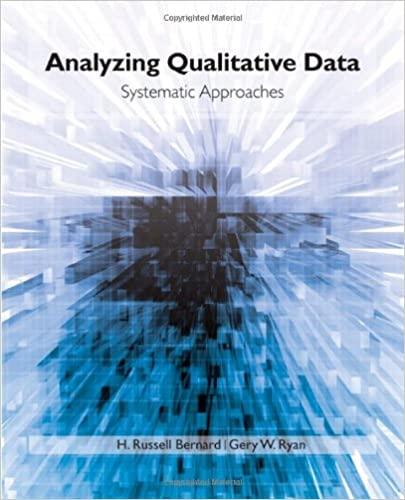Question
1. Results from Sperling's (1960) experiment on sensory memory suggests that a. cues decrease our retention of information. b. delayed cues increase our retention of
1. Results from Sperling's (1960) experiment on sensory memory suggests that
| a. | cues decrease our retention of information. | |
| b. | delayed cues increase our retention of information. | |
| c. | all information in sensory memory gets transferred to short-term memory. | |
| d. | we take in all (or most) sensory information. |
2. The Modal Model of Memory put forth by Atkinson and Shiffrin (1968) is consistent with which modern approach to Cognition?
| a. | Information Processing | |
| b. | Computer Modeling | |
| c. | Embodied Cognition | |
| d. | Biological Perspective |
3. Sperling (1960) tested the capacity and duration of sensory memory across three conditions. Performance on the delayed partial report condition was:
| a. | significantly better than the other conditions. | |
| b. | similar to the whole report condition. | |
| c. | similar to the partial report condition. | |
| d. | significantly worse than the other conditions. |
4. According to the Modal Model of Memory (Atkinson & Shiffrin, 1968), which cognitive process occurs between sensory and short-term memory, allowing us to temporarily hold onto information for further processing?
| a. | Decision-making | |
| b. | Attention | |
| c. | Perception | |
| d. | Sensation |
Step by Step Solution
There are 3 Steps involved in it
Step: 1

Get Instant Access to Expert-Tailored Solutions
See step-by-step solutions with expert insights and AI powered tools for academic success
Step: 2

Step: 3

Ace Your Homework with AI
Get the answers you need in no time with our AI-driven, step-by-step assistance
Get Started


